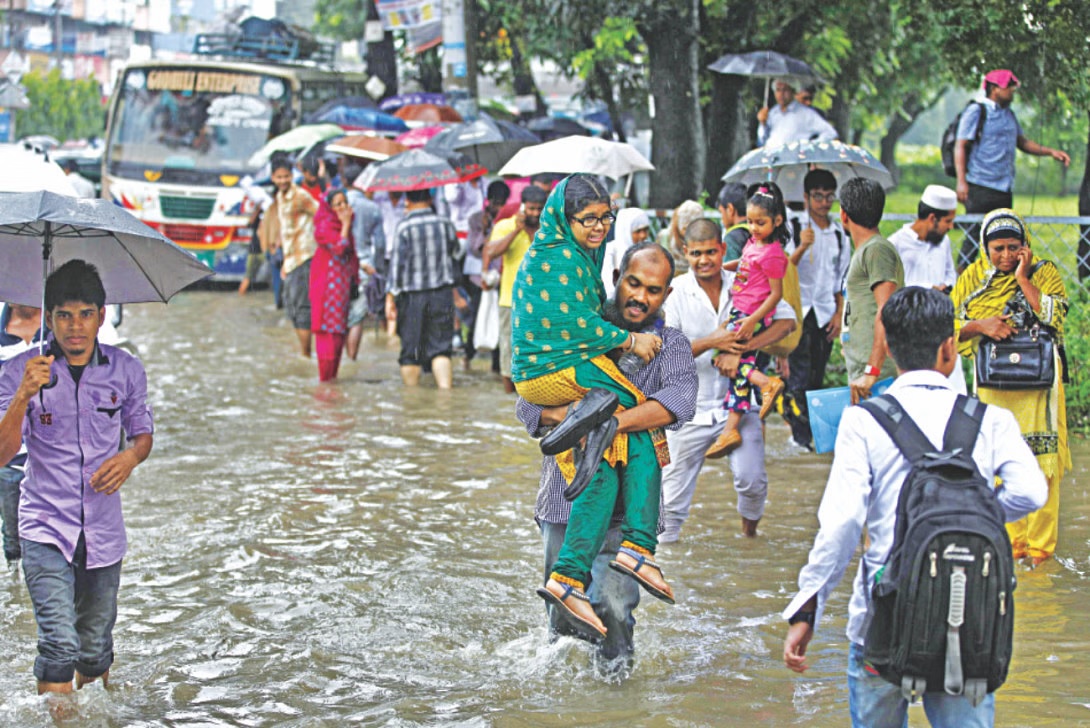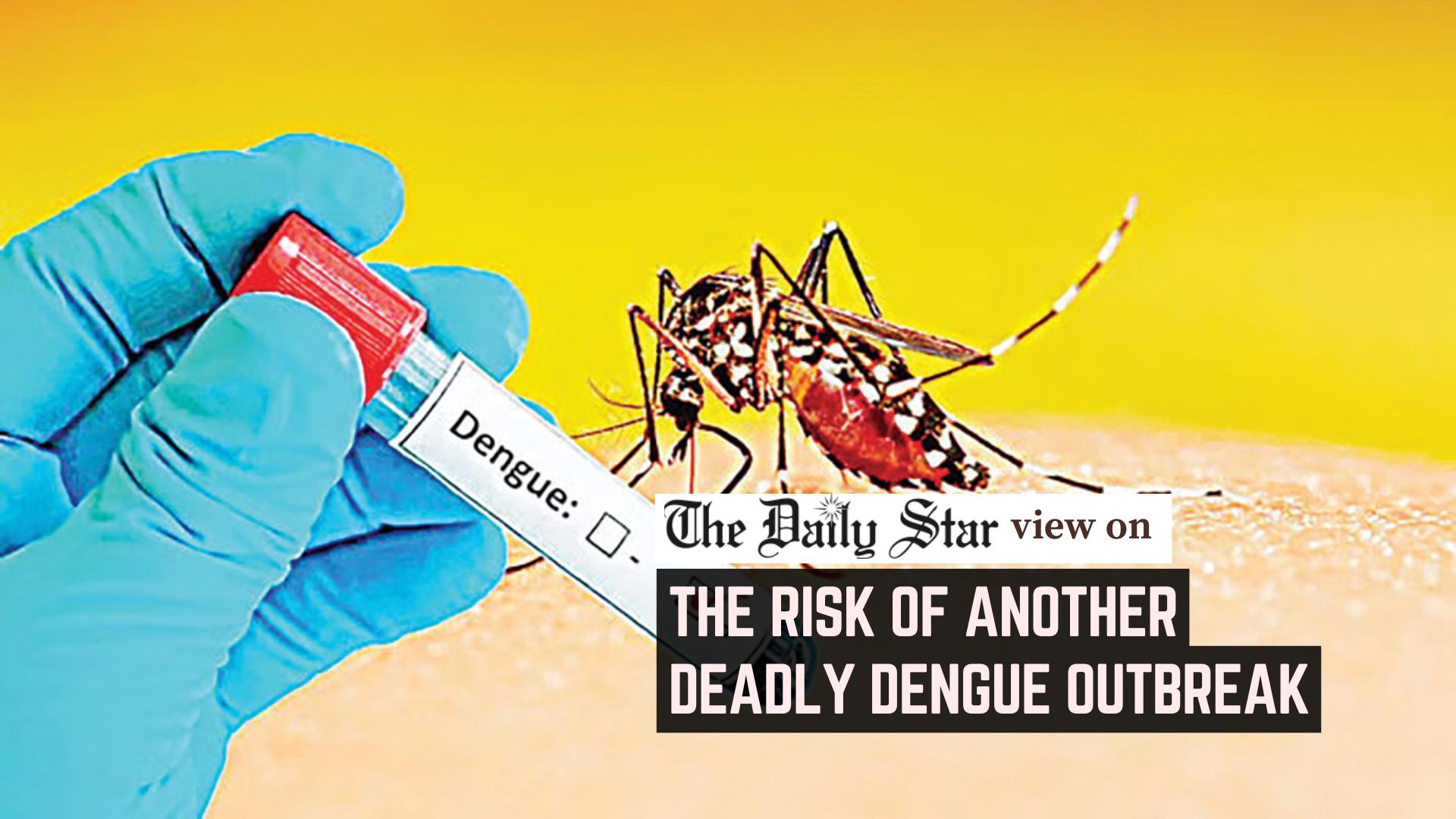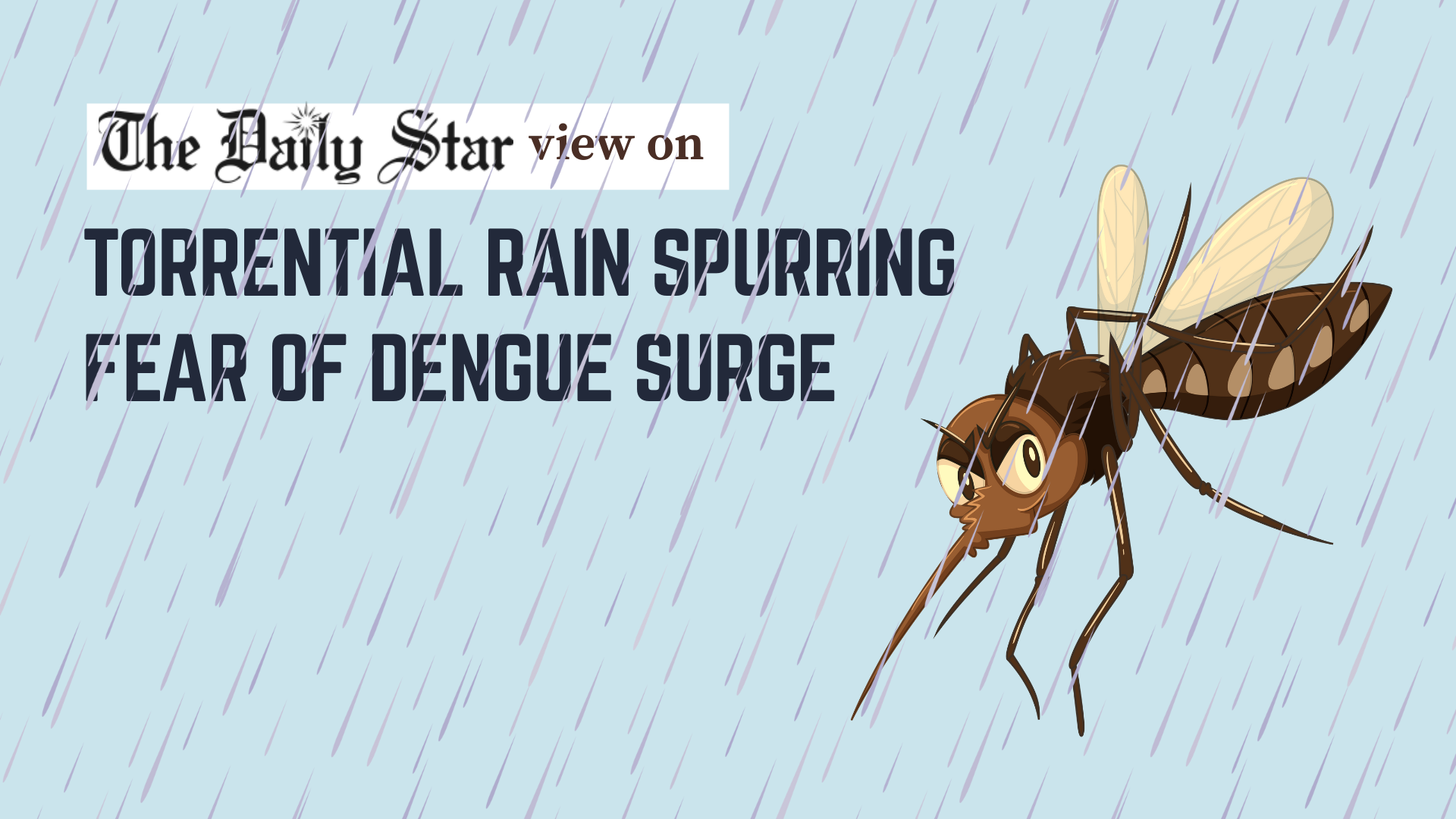The battle against dengue needs collective action

In Bangladesh, dengue is no longer a seasonal or urban disease; it has spread nationwide and is now prevalent almost throughout the year. According to Bangladesh's Dengue Dynamic Dashboard (2025), from January 1 to September 14 this year, 37,891 people have been hospitalised due to dengue. The actual number of hospital admissions is likely to be higher, as not all hospitals in the country are yet included in the data reporting system. The dashboard further shows that this year, the highest number of cases were reported in Dhaka division—14,987 people, which is 40 percent of the total. However, Barishal's infection rate as a percentage of its total population is the highest compared to the rates in other divisions.
Monthly data on deaths reveal that the highest number of fatalities from dengue occurred in July (41 deaths), closely followed by August (39 deaths). In the first 14 days of September, 28 people have succumbed to dengue, bringing the total number of deaths to 150 between January 1 and September 14. Nearly half of the deceased were aged below 30 and only nine percent of the dead were aged over 60. Clearly, dengue is claiming the lives of children, young people, and those in their most productive years. The death of a young and working individual is not only a personal tragedy but also a blow to our economic productivity. When an earning member of a family dies, the household loses its source of income. At the same time, the state loses a promising citizen who would have contributed to the economy through income, savings, consumption, and taxes. Such deaths also negatively impact the country's GDP.
This raises the question as to why state institutions are not acting decisively despite so many deaths. The Directorate General of Health Services (DGHS) publishes daily statistics on cases and deaths, but beyond that, no effective policy initiatives are visible. City corporations and local government bodies occasionally spray insecticides with fogging machines, but research has shown that such fogging is not effective in destroying the primary dengue vector—the Aedes mosquito. Hospitals face bed shortages, doctors and nurses are overwhelmed, and there is a lack of adequate blood supply, all of which further weaken dengue treatment capacity. Administrative responses remain superficial, while systematic and long-term planning is missing.
Ordinary citizens cannot escape responsibility either. We post about dengue on social media, share pictures or news of the dead, express grief briefly, and then return to our usual routine. Beyond that, there is hardly any social response. We seem to have accepted dengue's prevalence as our fate, reflecting a mindset of neglecting duties and responsibilities which is rendering us passive. We do not seem to think about the children left orphaned after losing their parents to dengue or about families who lose their only breadwinner. Neither do we appear to worry about the risk that our own children and family can fall victim, too.
The social catastrophe the disease brings by shattering families and putting children's education and safety at risk seems to escape our attention. The disease's prevalence did not become severe overnight, however. It is the cumulative effect of failures at the personal, familial, social, institutional, and state levels. As individuals, we do not keep our homes and surroundings clean. Families fail to create dengue awareness among their children. As a society, we do not take collective action. Local government bodies evade responsibility. At the state level, there is a lack of policy, weak coordination, and insufficient budget allocation.
Therefore, to reduce the devastation of dengue, immediate collective action is necessary. Local governments must lead ward-based cleanliness drives and effective mosquito control programmes. For those to succeed, the entire ecosystem of the programme must be made fully functional, including a comprehensive, well-structured dengue management plan. This should include regularly testing whether mosquitoes have grown resistant to the insecticides being used. Besides, a proper mixture of insecticides must be ensured, and applied in scientifically effective ways—for example, adhering strictly to when adulticides and larvicides should be used. At the same time, continuous training must be arranged for mosquito control workers so that they become skilled in proper application methods. Introducing performance-based incentives can be considered to keep workers motivated and attentive.
The effectiveness of dengue control activities must be monitored and observed regularly. Community- or ward-based social monitoring could be introduced, where designated individuals ensure that mosquito control workers have indeed sprayed insecticides at scheduled times. Most importantly, a robust surveillance system must be built to support data-driven decision-making.
Communities and educational institutions also need to be effectively engaged. Every school could form a "wellbeing club" through which students are made aware of dengue prevention, alongside other health and wellbeing issues. Similarly, involving Rover Scouts, Girl Guides, the "Little Doctor" programme, and other youth organisations in dengue prevention activities and discussions could multiply the social impact.
In addition, mosques, neighbourhood clubs, and NGOs should be effectively engaged in creating dengue awareness and control. At the same time, citizens must act responsibly by keeping rooftops, yards, flowerpots, drains, and all water-collecting spaces clean on a regular basis. At the state level, integrated policy formulation, sufficient budget allocation, strengthened research activities, and expansion of hospital and laboratory facilities must be prioritised. Above all, continuous awareness campaigns through mainstream and social media and in educational institutions are essential.
Dengue is not just a disease—it is a reflection of our mismanagement, negligence, and failure to uphold responsibilities. If we continue to remain idle, more lives will be lost, families will collapse, and society will grow increasingly fragile. So we must raise awareness in this regard. Through collective effort, under the leadership of local government bodies (city corporations, municipalities, district councils, upazila councils, etc), and with the active participation of social organisations, we can build an effective social movement against dengue.
Dr Syed Abdul Hamid is professor of health economics at Dhaka University, convener of Alliance for Health Reforms Bangladesh and Network for Healthcare Excellence, and chief adviser of Universal Research Care Ltd.
Views expressed in this article are the author's own.
Follow The Daily Star Opinion on Facebook for the latest opinions, commentaries and analyses by experts and professionals. To contribute your article or letter to The Daily Star Opinion, see our guidelines for submission.




 For all latest news, follow The Daily Star's Google News channel.
For all latest news, follow The Daily Star's Google News channel. 


Comments